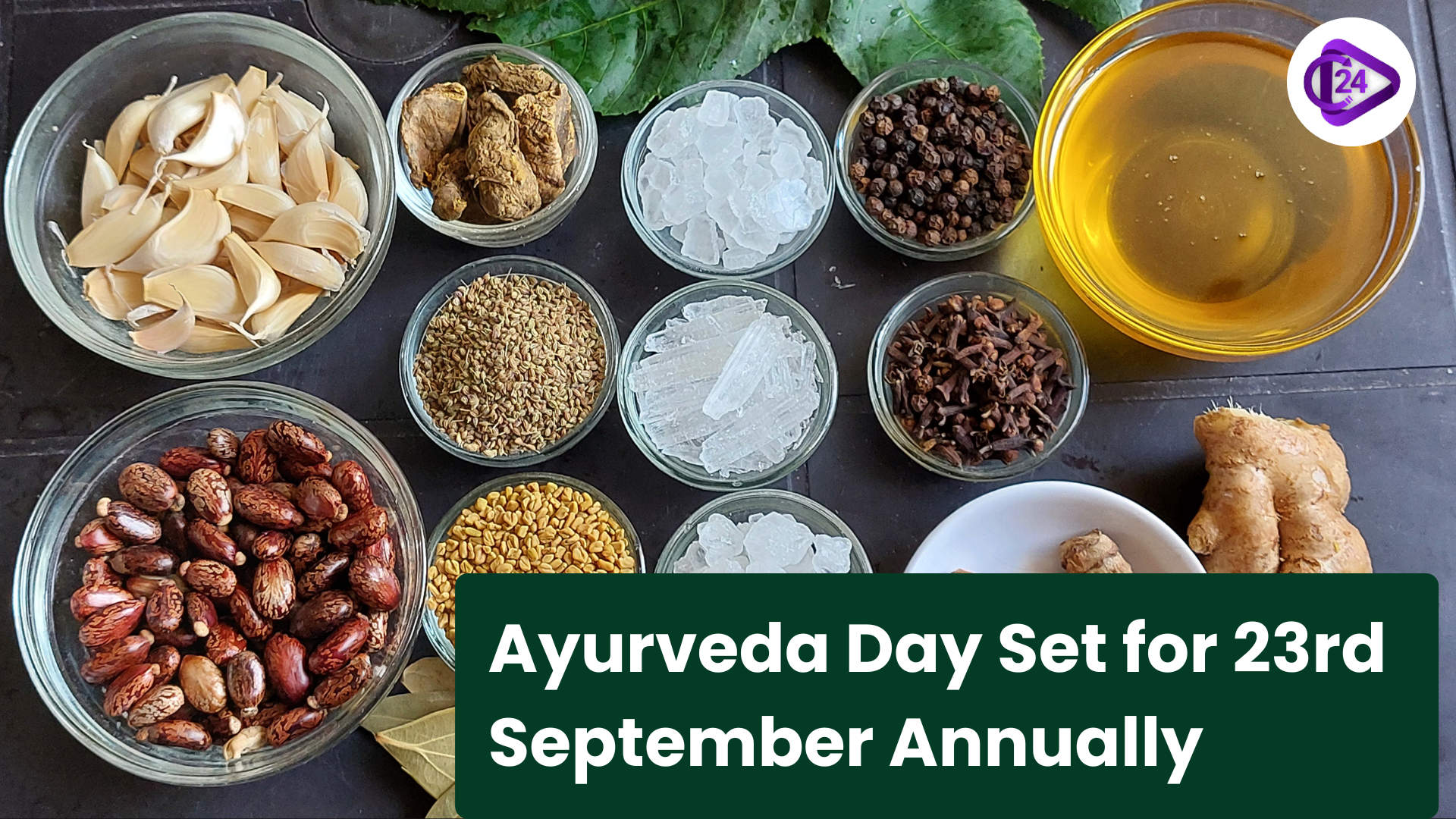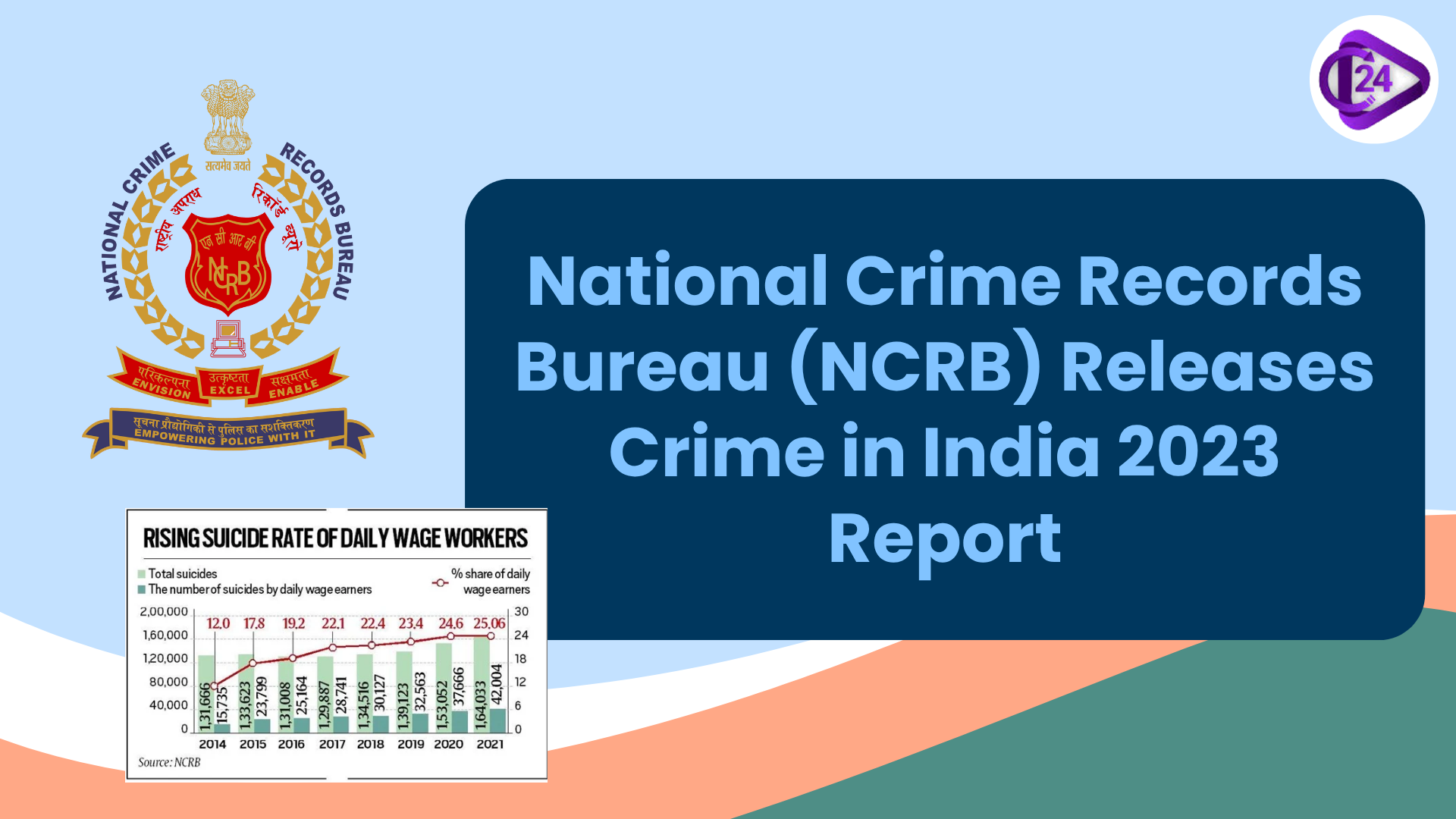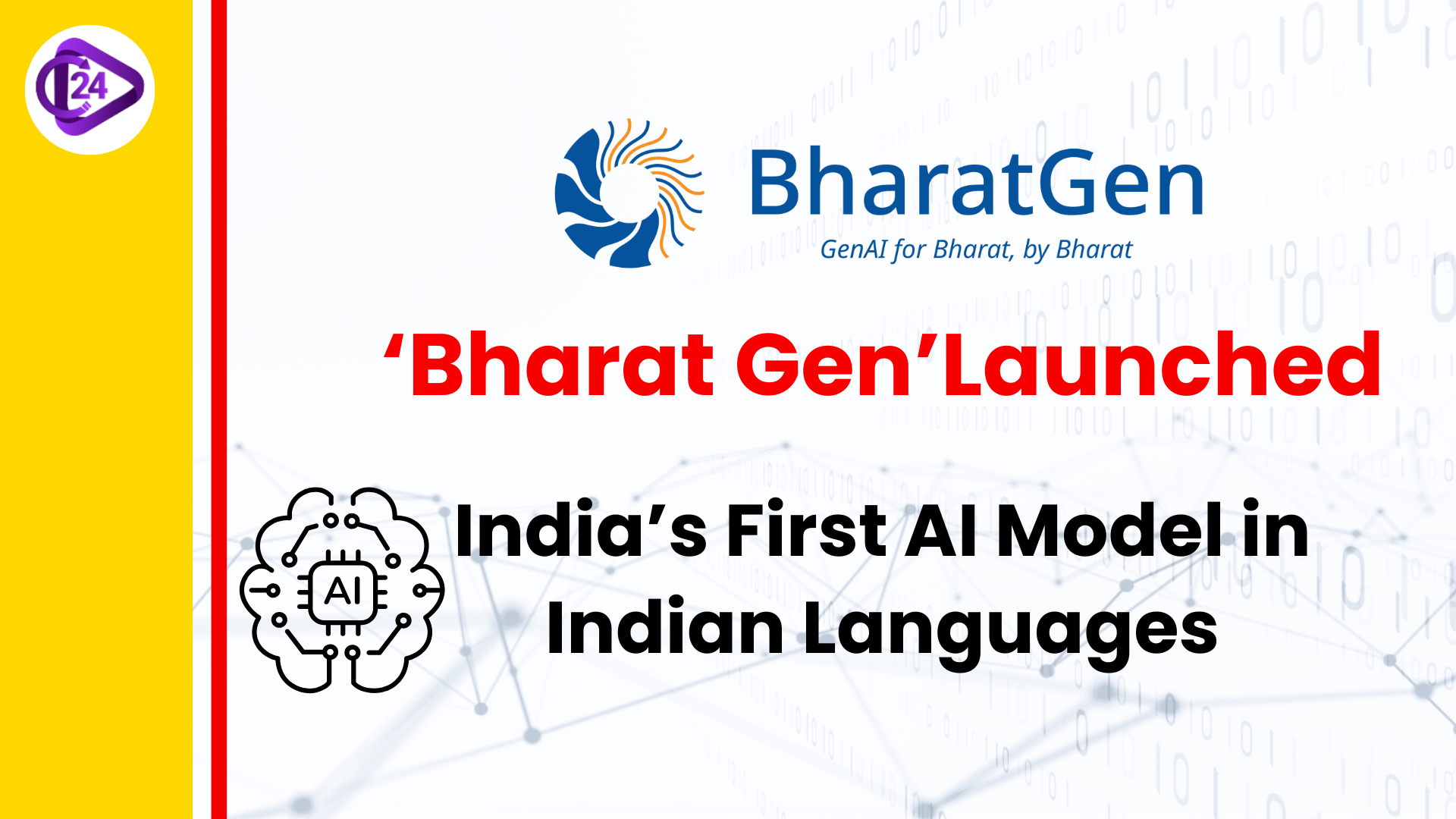
In a path-breaking move, the Government of India has formally decreed 23rd September as the fixed date for observing Ayurveda Day annually starting from 2025. The transition from the variable lunar date of Dhanteras (celebrated in the Hindu month of Kartik) was to make the celebration uniform nationally and internationally. This was done by a Gazette Notification issued on 23rd March 2025 to bring uniformity and ease of observance.
Context
-
The Government of India has formally decreed 23rd September as the fixed date for observing Ayurveda Day annually starting from 2025.
Key Points
-
Reason for Change: The date of Dhanteras varies between 15th October and 12th November, leading to logistical problems in planning national and international events.
-
Astronomical Symbolism: 23rd September autumnal equinox, symbolizes cosmic harmony, reflecting Ayurveda's emphasis on balancing with nature.
-
Global Engagement: The Ministry of Ayush will seek to incorporate Ayurveda much more intensively into global health discourse, inviting involvement from all sectors.
Definition of Ayurveda:
-
Ayurveda is a combination of two words: AYU (life) and VEDA (science or knowledge). Therefore, Ayurveda means the "science of life."
-
It is a complete system of medicine that not only addresses physical health but also spiritual and mental health.
Branches of Ayurveda:
-
Nara Ayurveda: Concerns human life.
-
Satva Ayurveda: Concerns animal life and its diseases.
-
Vriksha Ayurveda: Concerns plant life, its growth, and diseases.
Practice of Ayurveda:
-
Approved by the Indian Medical Council (1971): Ayurveda, together with Unani and Siddha, is recognized as a significant system of traditional medicine.
-
Preventive Aspect: Emphasizes personal cleanliness, climate-related practices, and environmental considerations.
-
Curative Aspect: Includes herbal drugs, physiotherapy, diet, and external therapies.
-
Individualized Approach: Therapies are modified to suit each patient's individual requirements.
Significance:
-
Body's Components: Ayurveda views the human body as a balance of three humors (Vata, Pitta, Kapha), seven tissues (Rasa, Rakta, Mansa, Meda, Asthi, Majja, Shukra), and waste products (mala, mutra, sweda).
-
Balance is Paramount: The balance of these components controls health and vitality.
-
Holistic Health: Focuses not only on curing but also on preventing disease, encouraging health, and facilitating recovery.
Major Challenges of Ayurveda:
-
Dated Concepts:
-
There are some Ayurvedic writings that have ideas in conflict with contemporary physiology (e.g., urine formation theory).
-
-
Ineffective in Emergencies:
-
Ayurveda does not perform well in acute diseases, infections, and operations, preventing its global acceptance.
-
-
Lack of Uniformity:
-
Ayurvedic practices vary geographically due to diversified plant-based medicine.
-
-
Misleading Propaganda:
-
Ayurvedic pharma industries at times exaggerate the virtues of products without scientific evidence, resulting in over-reliance on drugs rather than on lifestyle changes.
-
Government Efforts towards Ayurveda
-
National Ayush Mission: Directed towards encouraging and integrating traditional medicine.
-
Aahaar Kranti Mission: Encourages nutritional awareness and indigenous nutrition systems.
-
New Portals on Ayush Sector: Ensuring digital outreach and information.
-
ACCR Portal & Ayush Sanjivani App: Means to greater access to Ayurvedic healthcare solutions.
Future Prospects and Way Forward:
-
Reverse Pharmacology: Merging clinical experiences in order to innovate new Ayurvedic drugs.
-
To lead in Ayurvedic R&D, NMITLI (New Millennium Indian Technology Leadership Initiative) promotes collaboration between academic institutions, the private sector, and public research institutes.
-
Following Kerala's Lead: promoting Ayurveda as a standard practice for people of all ages in order to improve immunity and health.
Conclusion
The official designation of September 23rd as Ayurveda Day offers a consistent and emblematic date that captures the spirit of Ayurveda. It enhances India's international standing in the global health discourse and fortifies its dedication to advancing Ayurveda as a comprehensive, preventative healthcare system.
UPSC Prelims Practice Questions
Q.1 Ayurveda Day is observed to mark the birth anniversary of which among the following deities regarded as the father of Ayurveda?
a) Charaka
b) Sushruta
c) Dhanvantari
d) Patanjali
Q.2 Read the following statements about Ayurveda Day:
- It is celebrated every year on the birth anniversary of Sushruta.
- The Ministry of AYUSH celebrates Ayurveda Day.
- It is celebrated on Dhanteras every year.
Which of the statements provided above are correct?
a) 1 and 2 only
b) 2 and 3 only
c) 1 and 3 only
d) 1, 2 and 3
UPSC Mains Practice Questions
Q.1 "Ayurveda Day is not just a celebration of traditional medicine but a strategic step towards integrative healthcare in India."
Explain the importance of Ayurveda Day in the context of India's public health system and soft power diplomacy. (250 words).



 Understanding Crime in India 2023: Highlights from The NCRB Report
Understanding Crime in India 2023: Highlights from The NCRB Report Asia’s Longest Freight Train ‘Rudrastra’ – Indian Railways Milestone
Asia’s Longest Freight Train ‘Rudrastra’ – Indian Railways Milestone Shaheed Udham Singh Remembered on Martyrdom Day 2025
Shaheed Udham Singh Remembered on Martyrdom Day 2025 NISAR Satellite: NASA-ISRO Joint Earth Mission Launch
NISAR Satellite: NASA-ISRO Joint Earth Mission Launch Bharat Gen: India’s First AI LLM in Indian Languages
Bharat Gen: India’s First AI LLM in Indian Languages Shri Shivraj Singh Chouhan Launches ‘Viksit Krishi Sankalp Abhiyan’ to Transform Indian Agriculture
Shri Shivraj Singh Chouhan Launches ‘Viksit Krishi Sankalp Abhiyan’ to Transform Indian Agriculture Launch of ‘Know Your DIGIPIN’ & ‘Know Your PIN Code’: Boosting India’s Digital Addressing
Launch of ‘Know Your DIGIPIN’ & ‘Know Your PIN Code’: Boosting India’s Digital Addressing India’s Trade Deficit Widens to $8.65 Billion in April Amid Surge in Merchandise Imports
India’s Trade Deficit Widens to $8.65 Billion in April Amid Surge in Merchandise Imports India participates in IMDEX Asia 2025, a maritime defense exhibition in Singapore
India participates in IMDEX Asia 2025, a maritime defense exhibition in Singapore






